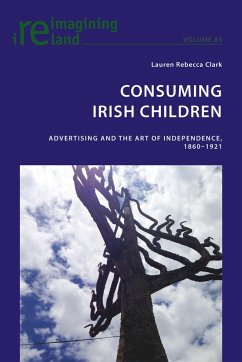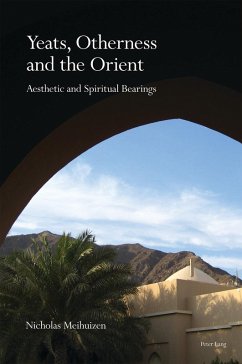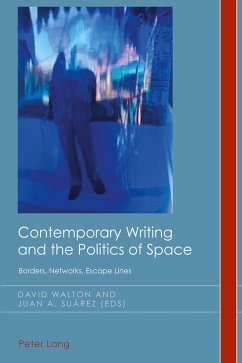
Forces of Ambiguity (eBook, PDF)
Life, Death, Disease and Eros in Thomas Mann's «Der Zauberberg»
Versandkostenfrei!
Sofort per Download lieferbar
Statt: 80,20 €**
63,95 €
inkl. MwSt.
**Preis der gedruckten Ausgabe (Broschiertes Buch)
Alle Infos zum eBook verschenkenWeitere Ausgaben:

PAYBACK Punkte
32 °P sammeln!
Thomas Mann's novel Der Zauberberg (1913-1924) illustrates a change in the author's conceptions of life, death, disease and Eros following World War I. Set in a Swiss tuberculosis sanatorium, the novel's main protagonist, Hans Castorp, comes into contact with three pedagogic figures who each represent a different attitude towards these themes. The humanist Settembrini, for example, affirms life but is repulsed by Eros, disease and death; the Jesuit ascetic Naphta glorifies erotic suffering and death while denying life; and the coffee magnate Peeperkorn celebrates life and Eros - yet to a patho...
Thomas Mann's novel Der Zauberberg (1913-1924) illustrates a change in the author's conceptions of life, death, disease and Eros following World War I. Set in a Swiss tuberculosis sanatorium, the novel's main protagonist, Hans Castorp, comes into contact with three pedagogic figures who each represent a different attitude towards these themes. The humanist Settembrini, for example, affirms life but is repulsed by Eros, disease and death; the Jesuit ascetic Naphta glorifies erotic suffering and death while denying life; and the coffee magnate Peeperkorn celebrates life and Eros - yet to a pathological extent.
This book relies on intertextual theory to examine the relation of these conceptions of life, death, disease and Eros within the novel to the thought of Novalis, Arthur Schopenhauer, Friedrich Nietzsche and Sigmund Freud. Exploring the dialogic clash of their conceptions together with the sociological implications of their work, this author investigates how the relationships between Der Zauberberg and the intertexts influence the reader's interpretation of the nature of life, death, disease and Eros as well as the effect they have on the culture depicted in the novel.
This book relies on intertextual theory to examine the relation of these conceptions of life, death, disease and Eros within the novel to the thought of Novalis, Arthur Schopenhauer, Friedrich Nietzsche and Sigmund Freud. Exploring the dialogic clash of their conceptions together with the sociological implications of their work, this author investigates how the relationships between Der Zauberberg and the intertexts influence the reader's interpretation of the nature of life, death, disease and Eros as well as the effect they have on the culture depicted in the novel.
Dieser Download kann aus rechtlichen Gründen nur mit Rechnungsadresse in A, D ausgeliefert werden.













